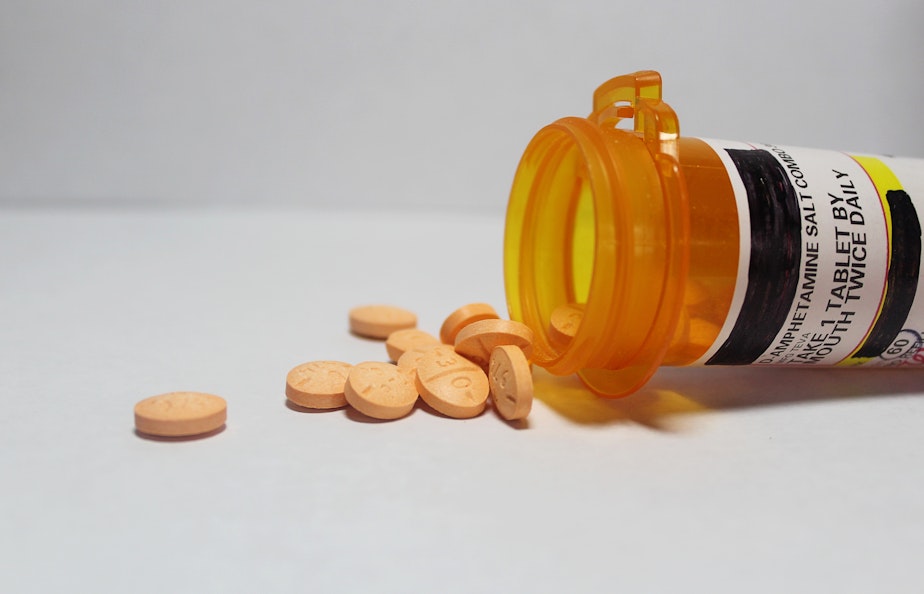How to get through the U.S.'s Adderall shortage, according to a psychiatrist

A nationwide Adderall shortage has affected people with attention-deficit hyperactivity disorder since October, and it isn't expected to end until the new year.
We spoke to a psychiatrist about the factors driving the shortage and tips for getting through it.
As of 2019, an estimated 6 million children between the ages of 3 and 17 have been diagnosed with attention-deficit/hyperactivity disorder, better known as ADHD, according to the Centers for Disease Control.
Many people with ADHD use the medication Adderall to treat their symptoms.
"This medication helps regulate some of the brain chemicals that we call neurotransmitters, especially one called dopamine. And people with ADHD have trouble with the regulation of this chemical," said Dr. Maggie Sibley, a clinical psychologist and an associate professor of psychiatry and behavioral sciences at the University of Washington's School of Medicine.
How did the shortage begin?
The shortage the U.S. is seeing right now is a "perfect storm" of several factors, Sibley said.
The first is an increase in demand for Adderall due to the Covid-19 pandemic, when physicians saw increase in the number of people (especially adults) diagnosed and treated for ADHD.
The onset of the pandemic kicked off big changes in peoples' life environment. For some people, that meant working from home in a less structured environment than the office, and trying to juggle family, work, and home all at the same time.
"People who had maybe a history of milder attentional concerns really felt those exacerbated, and maybe for the first time, went to get care for them," Sibley said. "So we have more people on that end, who might be looking for treatment."
Another reason for the shortage? A rise in new care models that increased the access to ADHD medications for people who might not have been able to get treated before.
These digital startups make it easier for people to go online, meet with a virtual provider, and quickly get a prescription to Adderall.
But that model raises concerns for psychologists like Sibley.
"We've had people who are seeing a lot of very relatable content on ADHD on social media, like TikTok in particular. And ADHD is a relatable disorder, we all get disorganized," Sibley said. "The average person has one or two symptoms of ADHD, but to have a diagnosis of ADHD, you need a lot of those symptoms. And so sometimes...people with milder concerns are seeing this content on social media, they're finding it relatable."
If providers aren't trained to do careful assessments, they may be diagnosing more people with ADHD.
Companies estimate the amount of ingredients they'll need each year to make Adderall based on demand from the previous year. And because Adderall is a controlled substance, companies have to share these reports to the Food and Drug Administration to access those ingredients.
So between the increased demand due to the pandemic, and increased access to Adderall prescriptions, companies are scrambling to produce enough of the drug.
How is the shortage impacting people who take Adderall for ADHD?
Adults with ADHD are mostly impacted by the shortage, because Adderall is mostly prescribed to adults, Sibley said.
People react differently from the withdrawal of a stimulant medication, but Sibley said that generally, people will find their brain feels worse than than it did before they started the medication if they withdrawal suddenly.
If you're experiencing withdrawal symptoms, reach out to your doctor immediately.
What should I'm impacted by the shortage, or my child is?
If you or someone you know is impacted by the shortage of Adderall, here's what Dr. Sibley suggests to get through December:
- Talk to your prescribing physician
Discuss your range of options, and determine if there's another medication you can take in the meantime. There are also non-pharmaceutical options people with ADHD can use as well.
- Let people know what's going on
If you're in school and impacted by the shortage, or your child is affected, don't be afraid to let teachers know what's going on, Dr. Sibley said.
"Let folks know why symptoms of ADHD might be more of a struggle right now," she said. "And hopefully as a community, all the stakeholders in the life of your child can kind of support them through this, instead of maybe unfairly holding them accountable for something that isn't their fault."





